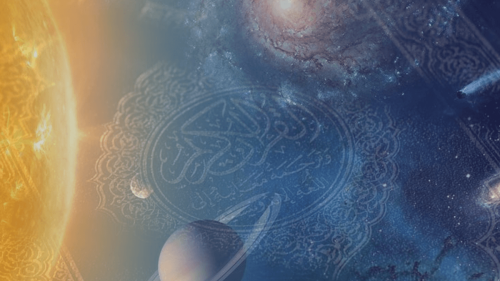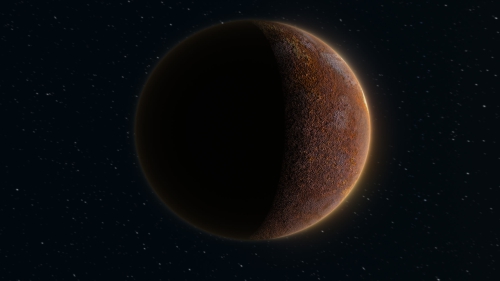Religion and Science

With a little interest I viewed a video of a somewhat celebrated atheist discussing his visit to a Muslim school in the UK.
During his trip, he claims to have noticed students quoting verses from the Qur'an which, he says, were scientifically inaccurate.
The verses which spoke of two bodies of water that don't mix were clearly misunderstood, and thus misinterpreted.
Therefore they were obviously 'scientifically incorrect' to the atheist since he didn't understand them properly in the first place.
Be that as the case may be, it is important to understand that the Muslim does not use science to qualify the Qur'an.
Rather it is the Qur'an that is held as the gold standard and is used to qualify the world around him: astronomy, biology, chemistry, even finance and economics.
Using science to qualify scripture is by origin a European-American practice where, as the New World was discovered, great effort was made to separate religion from state.
Emigrants from the Old World had seen it all: women being burnt alive accused of witchcraft and blasphemy, the Church imposing their Earth-centric view of the universe on everyone, and the persecution of people like Galileo for daring to prove a different solar system.
It was no secret that science and Christianity were at odds. But that was Europe.
In the Muslim world there was no conflict between science and religion. Neither the books of Islam nor the teachings of its scholars contradicted invention and technology.
As more and more discoveries in science came to light, Qur'anic evidence seemed to support and strengthen them.
The Muslim experience with science was one of perfect harmony, and diametrically opposed to that of Christendom's.
This congruence, which unlike Europe could find no divide between science and religion, is one reason why there are substantially fewer atheists among educated intellectuals in the Muslim world than there are in Christian nations.
Yusuf Khan resides in the Washington DC area and writes for the Examiner. He speaks frequently at various Islamic centers.
Related Suggestions
teachings of the Quran the Haditha. This is evident by looking at
history. Every innovation or invention since the middle ages has
occurred outside the middle east. Why? Because Islam repressed any
learning or new thought that might be in conflict with the people who
were now in charge through religion. Algebra is often related to Muslims and this is not even true because Algebra and astronomy were
in place long before Islam. The pagan Arabs used both to plot the
stars for their religions just look at the zugarats of acient
mesopatamia. Islam just adapted these.
Dr Salah has lectured and researched at the University of Constantine ( Algeria ) for more than ten years. He also tutored at the Department of Geography of the University of Manchester . More recently, he has worked as a research assistant at UMIST ( Manchester ) in the field of history of science.
Dr Salah has published many academic works. Publications in scientific journals include papers on environmental degradation, and desertification, as well as papers on politics and change in North Africa , and problems of economic and social development. He has also contributed historical entries to various encyclopaedias such as the Columbia Gazetteer, Encyclopaedia Britannica, and Francophone Studies. The largest written contribution by the author has been on the subject of Muslim science and civilisation, where many of his articles, can be found (in PDF format) on the website: http://Muslimheritage.com
http://www.amazon.co.uk/gp/product/0955115612?ie=UTF8&tag=httpwwwgoodco-20&linkCode=as2&camp=1789&creative=9325&creativeASIN=0955115612&SubscriptionId=1MGPYB6YW3HWK55XCGG2
There is no dichotomy among muslims between science and religion. That is why great muslim scientists of the past also were very well versed in Islamic studies also. Not a single one among them became an atheist. Actually Quran became an inspiring force for them to acquire knowledge and to benefit humanity by it.
We will be waiting for more articles on this same subject.

















